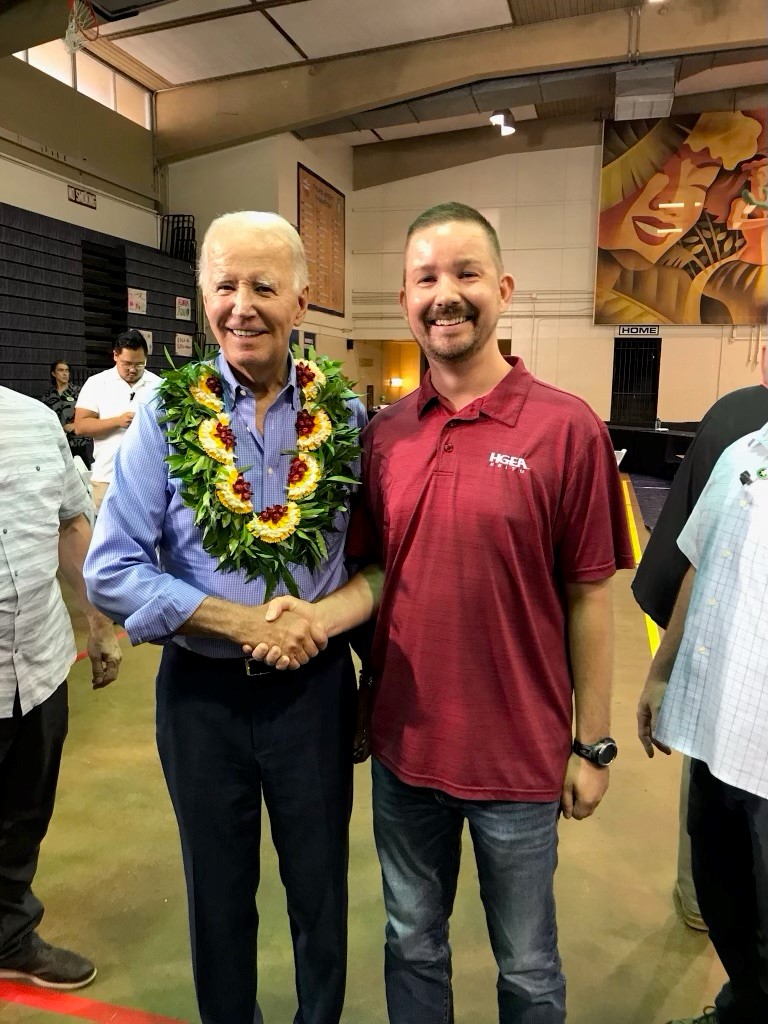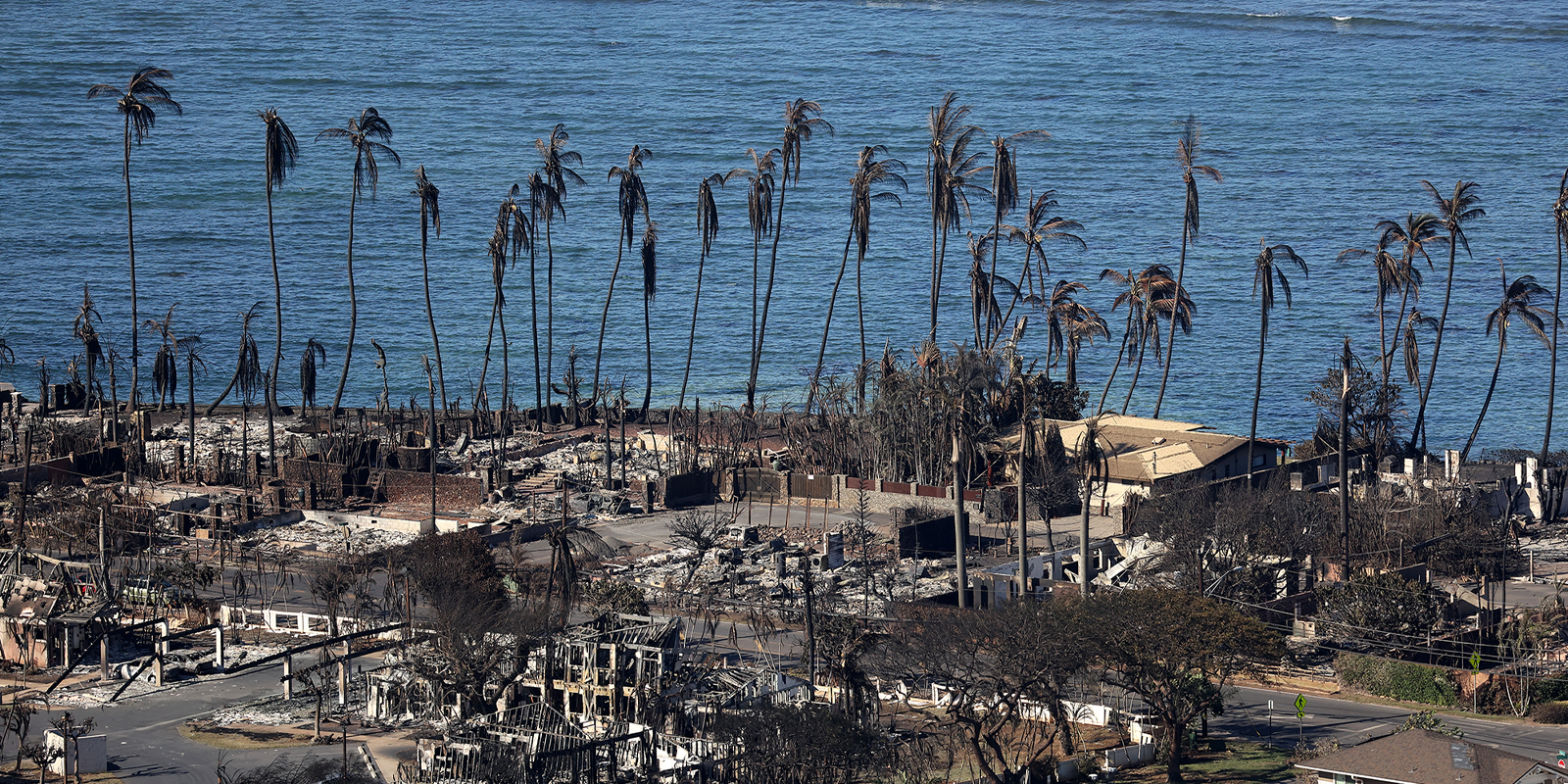
Cameron Dexter with U.S. President Biden. Member provided photo.
Cameron Dexter knew something was wrong. The winds that roared through Maui on the night of August 7 were much louder than the usual trade winds often heard blowing across the island’s western coast.
Dexter, a state social worker and Maui’s director-at-large for HGEA, said that the winds generated by a passing hurricane had not only knocked out power, but they were so strong that he didn’t feel safe driving into work the following morning.
“It was scary hearing how loud it was howling,” recalled Dexter. “I didn’t feel comfortable driving because of the wind. This was something completely different.”
Dexter, who lives in a neighborhood called Napili, on Maui’s northwest coast, said that because power was out and so was cell phone service, he didn’t know for most of the day that wildfires were ravaging the island he’s called home for the last decade.
Those wildfires would kill more than 115 people (many still remain missing) and would destroy the town south of him – Lahaina, while scorching thousands of acres. It would also upend the lives and livelihoods of many of Maui’s residents.
“The thing I recall,” said Dexter of the first day of the wildfire, “on the horizon, as the sun started to set, I just saw smoke coming from the general area of Lahaina town. I thought it was a brush fire. We’ve had a few major ones in recent years. Then my next-door neighbor said the whole entire town had been burnt to the ground. It was complete disbelief.”
Over 300 AFSCME members live in and around Lahaina.
Dexter and others trekked to the beach in the hopes of getting some sort of cell service. There, Dexter found “roads were lined with cars, people driving up and down the street. These were the refugees who had to flee the fire. Everyone was going to the beach to get one bar of service.”
Amid the disbelief and the grim news that would follow in the coming days, Dexter saw the soul of Maui emerge.
“Help started coming. It wasn’t from the people I expected. It was our community from central Maui and the rest of the island bringing resources: food, gas, diapers, clothing,” said Dexter. “These people, they went out of their own pocket…regular working-class folks I’ve never met before. The way I see it, the true soul of Hawaii shone that day because that’s how our culture is here. We look out for one another.”
Dexter said FEMA and the Red Cross started arriving to help residents who had lost their homes. On August 21, President Biden and First Lady Jill Biden visited Maui. Dexter was there to hear Pres. Biden speak and was encouraged by what he heard.
“I was pleased he made it clear we’re going to rebuild in the way we want it. That’s the sort of assurance we need right now. There’s a lot of grief that everyone’s dealing with.”
Dexter is referring to the fact that Lahaina has been the ancestral homeland for generations of Hawaiians, and it is their input that needs to be considered in any rebuilding effort, not that of developers and speculators who have been looking to take advantage of the disaster.
While Dexter was spared the destruction many of his neighbors experienced, his focus now is helping his clients – many of them children and their families – get the resources they need. He encourages anyone who can spare a few dollars to contribute to organizations helping get Maui back on its feet.
Those organizations include:
The AFSCME family has also stepped up to help. HGEA Local 152 partnered with UPW, delivering both supplies and financial support. Also, UNAC/UHCP collected donations and food that were delivered to members who work at Kaiser Maui Memorial Hospital. AFSCME International is also providing relief to members affected by the wildfires, through its Fallen Heroes Fund.

